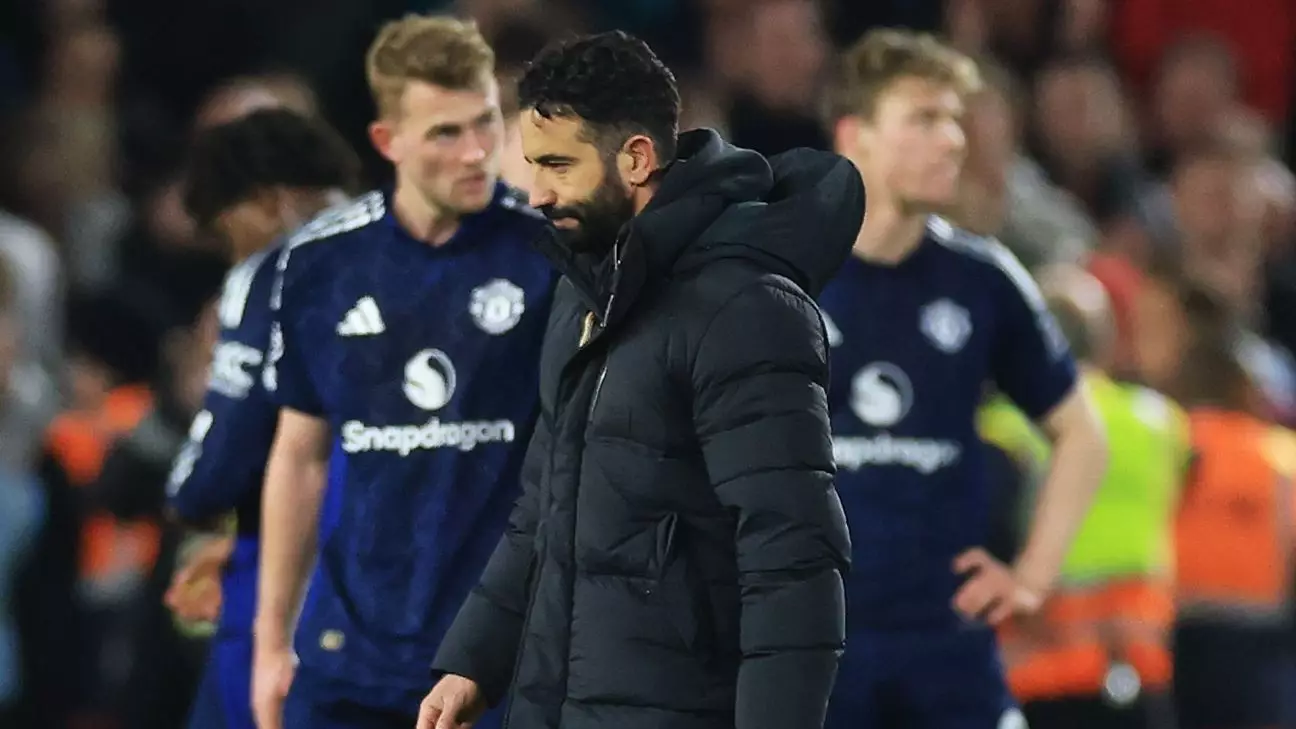Manchester United’s enduring legacy is rife with glorious victories and legendary players, but recent times have revealed a more sobering reality. Their current predicament under the leadership of Ruben Amorim starkly illustrates the instantaneous expectations placed on managers in top-flight football. Following yet another loss, this time to Nottingham Forest, Amorim echoed the sentiments felt by many: “In Manchester United, you don’t have the time.” This statement underscores the paradox of a club steeped in vast history yet demanding quick fixes in performance. For Amorim, who is now confronted with their 13th defeat in a single Premier League season, the stakes are ominously high.
Defensive Woes and Tactical Limitations
The match against Nottingham exposed glaring tactical shortcomings within the United structure. Anthony Elanga’s early goal for Forest shifted the dynamic of the game, placing United on the backfoot from the onset. When teams are forced into a defensive position, it can be catastrophic for their confidence, and it was evident that United struggled to regain control. Amorim noted this complication, revealing that the pressure has become almost untenable. His acknowledgment of the challenge faced when facing a team adept at quick transitions highlights an area where United has failed to adapt.
Despite controlling portions of the game, the inability to convert opportunities into goals is a central theme that plagues the squad. Amorim drew attention to Alejandro Garnacho, whose six attempts out of United’s 24 shots yielded minimal results. This inefficacy in the final third is a crux issue that extends beyond just one player; it reflects a broader systematic failure to capitalize on chances.
Younger Talent and the Pressure to Deliver
Garnacho, in particular, represents a critical focus point within the squad’s rebuilding process. Amorim’s defense of the young forward suggests an understanding of the pressures unique to young talents. The expectation for immediate output can overwhelm even the most skilled players, and Garnacho’s struggles epitomize this harsh reality. It’s crucial for management to balance the excitement generated by youthful exuberance with the sobering expectations of consistent performance. Keeping players like Garnacho motivated, while not overburdening them with the weight of the club’s history, is a delicate act for Amorim.
Moreover, the question arises: how can Amorim selectively harness the potential of these young talents to formulate a cohesive unit capable of withstanding the pressures of the Premier League? If Manchester United is to claim any semblance of its former glory, a fundamental re-evaluation of talent management and development will be necessary.
The Question of Leadership and Vision
The larger issue remains one of leadership and philosophical coherence within the club. The board’s decision to appoint Amorim, fresh from success in another league, suggests a willingness to embrace change. However, the follow-through has been inconsistent, and fans are understandably restless. With the record of 14 defeats looming ominously, the expectation grows that Amorim must articulate a clear vision, evolving the team into a more combat-ready unit capable of both dominating play and yielding results.
As Manchester United navigates this tumultuous period, the emphasis must shift from simply accumulating talent to fostering a robust footballing identity that resonates both on and off the pitch. Only then can the club truly begin to turn its fortunes.

